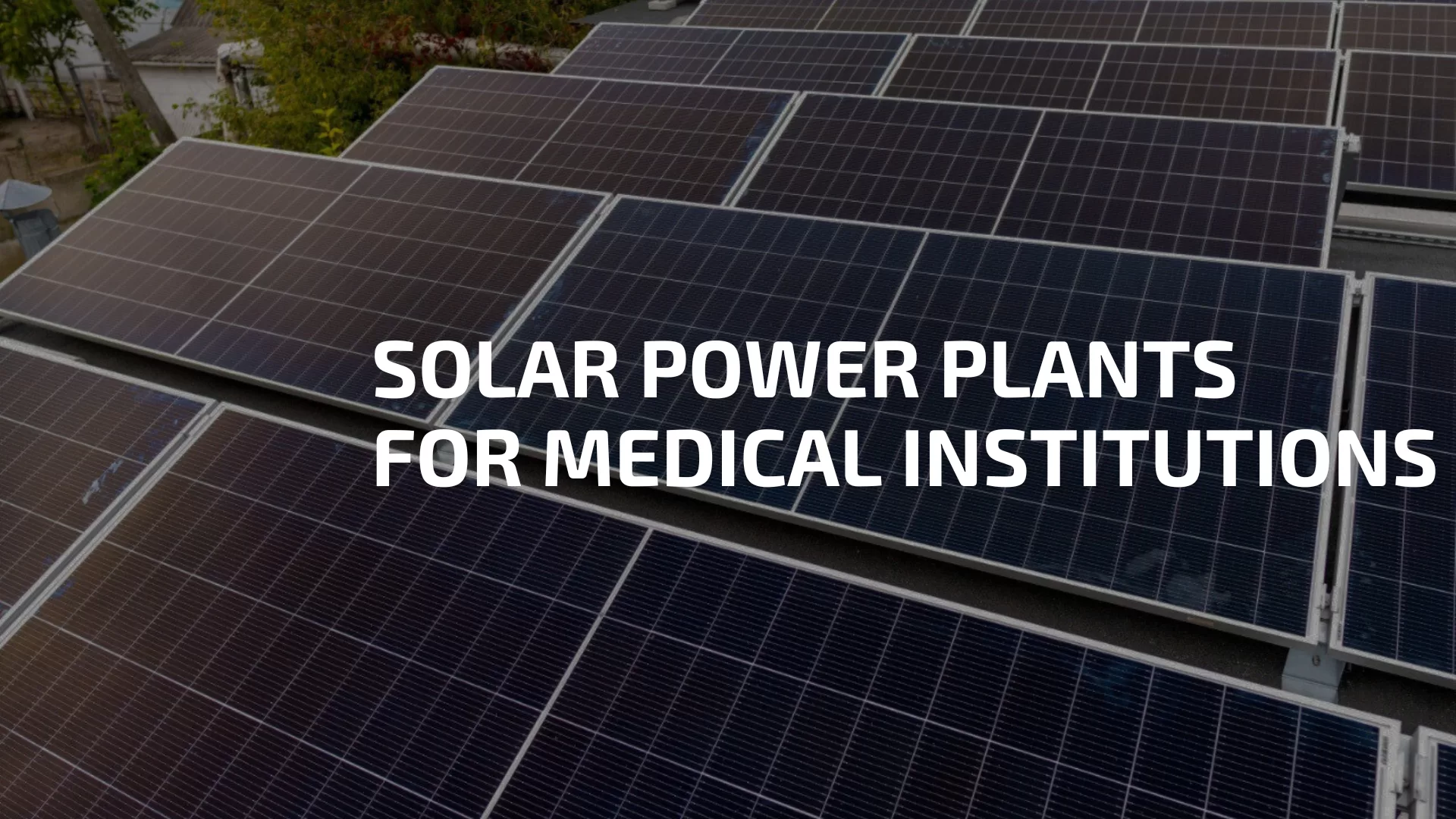Frequent attacks on Ukraine’s energy infrastructure have underscored the vital need for uninterrupted power supply in hospitals. Medical facilities cannot afford power outages as they endanger patients’ health and lives. Solar power plants with batteries provide essential backup for intensive care units, surgical departments, and medical equipment, ensuring operation during prolonged blackouts. During wartime, these systems offer stability and reduce reliance on diesel generators, save resources, and enhance the energy independence of healthcare institutions.
In the past two years, Ecoclub has installed 28 solar power plants (SPPs) in hospitals across Ukrainian communities. We discussed the impact of these systems with Ihor Kukharuk, Director of Hospital No. 2 named after V.P. Pavlusenko in Zhytomyr, and Iryna Yakovlieva, Chief Physician of the Teofipol Primary Healthcare Center.
– Ihor and Iryna, why did your institutions need a solar power plant? Did you have prior experience with energy efficiency projects?
Ihor Kukharuk, Director of Hospital No. 2, Zhytomyr:
“We installed a solar power plant because our hospital urgently needed to strengthen its energy resilience. As critical infrastructure, we must operate continuously, even during power outages. The solar plant helps us save on electricity costs and ensures the operation of essential equipment. Previously, we implemented some energy efficiency measures, such as installing a 20 kW solar power plant in 2023.”
Iryna Yakovlieva, Chief Physician of Teofipol Primary Healthcare Center:
“Our primary goal was to ensure uninterrupted operation of the healthcare center, particularly during electricity outages. This is vital for providing continuous medical services to our community. We had no prior experience with such projects, so this is a significant new step for us.”
– Tell us more about your healthcare institutions. How many people do you serve annually, and what departments and services do you offer?
Ihor Kukharuk:
“Our hospital serves thousands of patients annually. We have departments for therapy, surgery, intensive care, and several specialized units offering a wide range of medical services. Our surgeons perform complex operations, which demand a stable power supply. Any interruption could be fatal for patients.”
Iryna Yakovlieva:
“Our facility serves over 25,000 residents, including internally displaced persons. We operate departments for hemodialysis, surgery, therapy, pediatrics, and intensive care. Stable electricity is particularly critical for our hemodialysis and intensive care units, where we use sophisticated life-supporting equipment.”
– How did your healthcare institutions cope during power outages? Were there any critical situations?
Ihor Kukharuk:
“Fortunately, our hospital rarely faced power outages as part of critical infrastructure. However, after missile strikes severely damaged the city’s energy system, we had to rely on diesel generators. While they kept our departments running, the high fuel costs posed significant challenges.”
Iryna Yakovlieva:
“During outages, we used diesel generators, but their capacity was insufficient to power all departments. Only the most critical units operated fully, while others faced disruptions. This created difficulties for both staff and patients.”
– What equipment or departments will the solar power plant support?
Ihor Kukharuk:
“The solar power plant will ensure the operation of our intensive care unit and surgical department. The most electricity systems require ventilation systems, patient monitors, elevators, and surgical equipment.”
Iryna Yakovlieva:
“Our SPP will power hematology analyzers, X-ray machines, CT scanners, and ultrasound diagnostic devices. This equipment is essential for diagnosing and treating patients effectively.”
– How long can the solar power plant operate during a blackout?
Ihor Kukharuk:
“Our plant is equipped with 30 kWh batteries, allowing several hours of operation during blackouts. The exact duration depends on the equipment used, but it is sufficient to meet critical needs in the intensive care unit and operate elevators.”
Iryna Yakovlieva:
“Our solar power plant can sustain critical equipment and departments for several hours without grid electricity. This includes hematology analyzers, X-ray machines, CT scanners, and ultrasound devices.”
– How will you use the savings on electricity? Do you plan to expand the system or implement other renewable energy projects?
Ihor Kukharuk:
“We plan to reinvest the savings into further hospital development. One project in the pipeline is the thermal modernization of our medical buildings, which includes installing additional solar panels on rooftops. With support from GIZ and Ecoclub, we’ve already started this journey and hope to attract new investors for continued implementation of energy-efficient solutions.”
Iryna Yakovlieva:
“We aim to use the saved funds to improve the quality of medical services. We are also considering expanding the solar power system and exploring other energy efficiency measures to reduce costs and enhance our hospital’s resilience.”
– What advice would you give to communities interested in using renewable energy for public facilities but unsure where to start?
Ihor Kukharuk:
“Don’t be afraid to take the first step. Start by assessing your facility’s needs and exploring opportunities for renewable energy projects. It’s crucial to find reliable partners and consult organizations specializing in energy efficiency, such as Ecoclub, which has extensive experience in this field.”
Iryna Yakovlieva:
“My advice is not to delay. Renewable energy is not only about saving money but also about achieving independence from external factors. Seek guidance from experts and look for support through national and international programs. The key is to begin with an energy audit to understand your facility’s needs.”
This project, “Renewable Energy for a Resilient Ukraine,” is implemented by Deutsche Gesellschaft für Internationale Zusammenarbeit (GIZ) GmbH on behalf of the German government.












